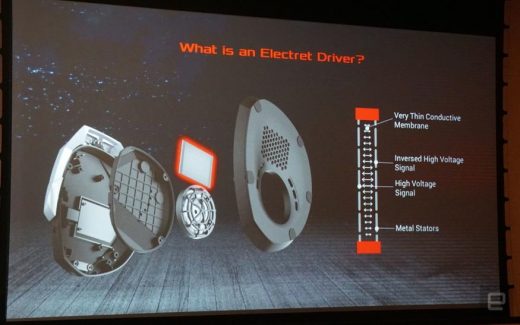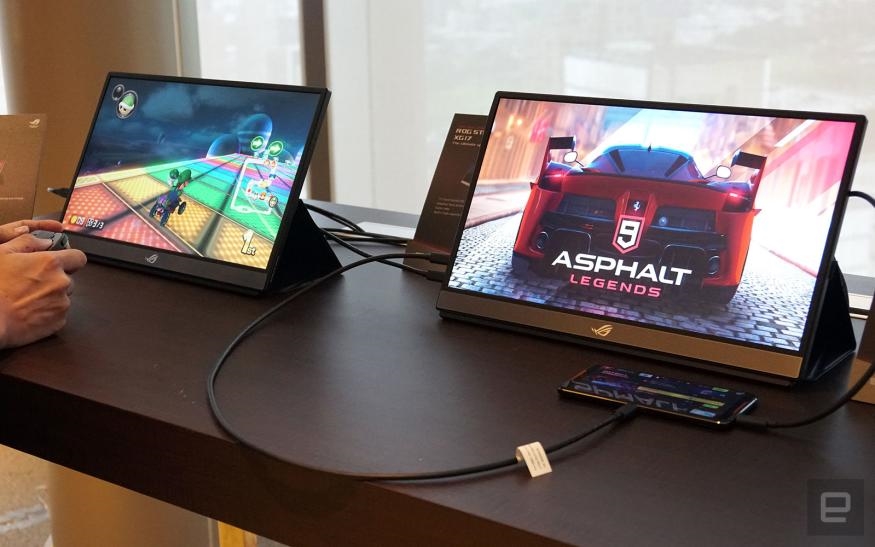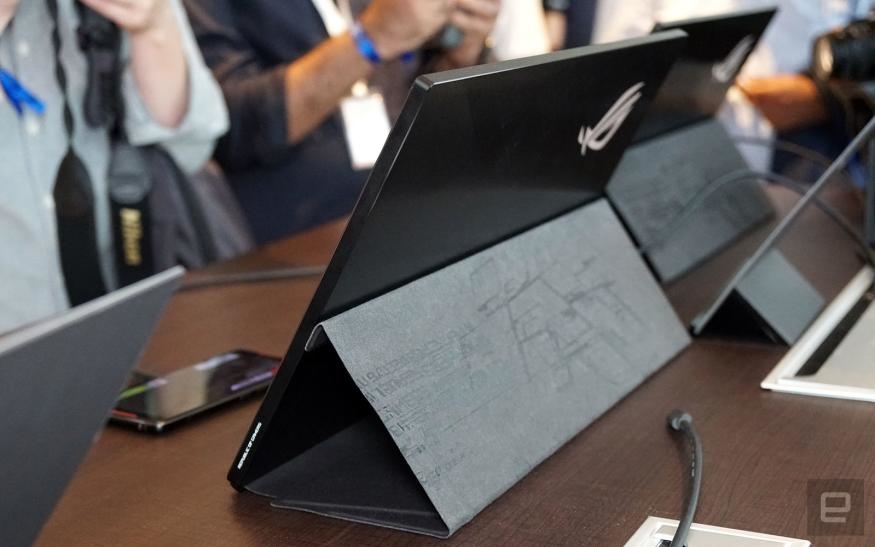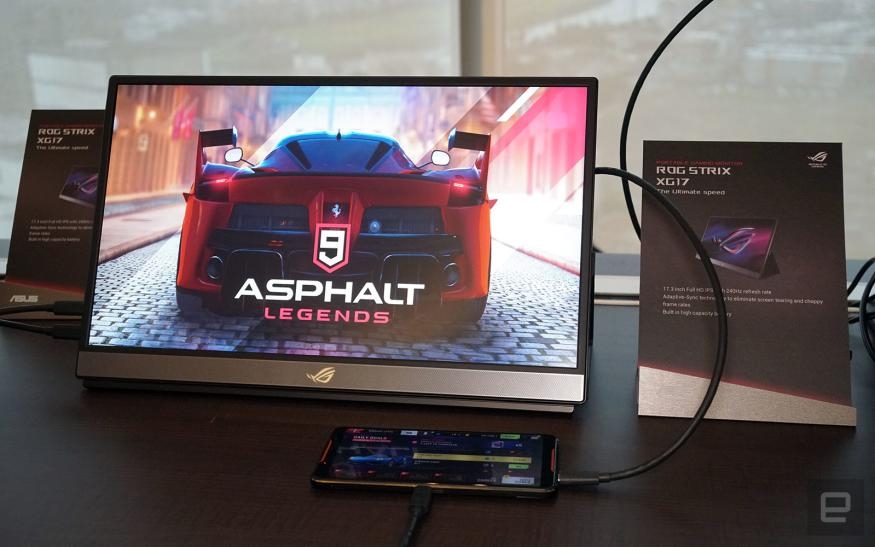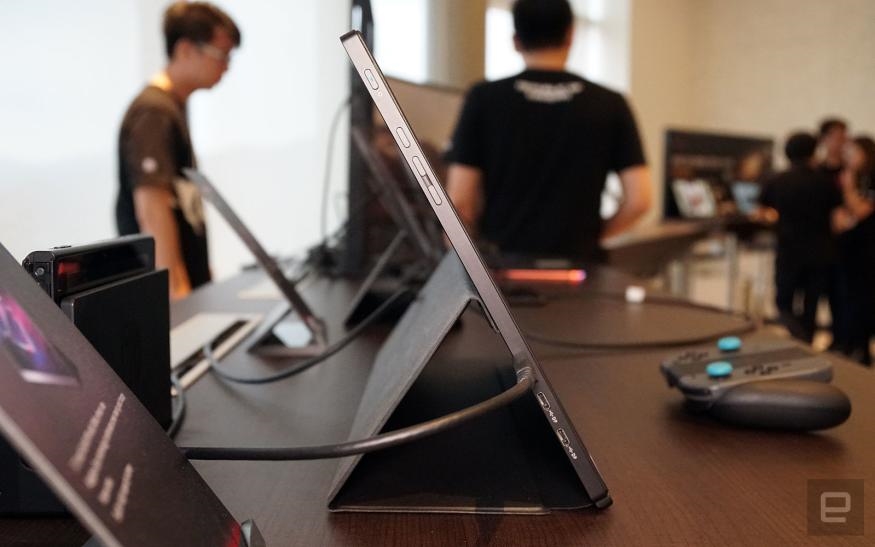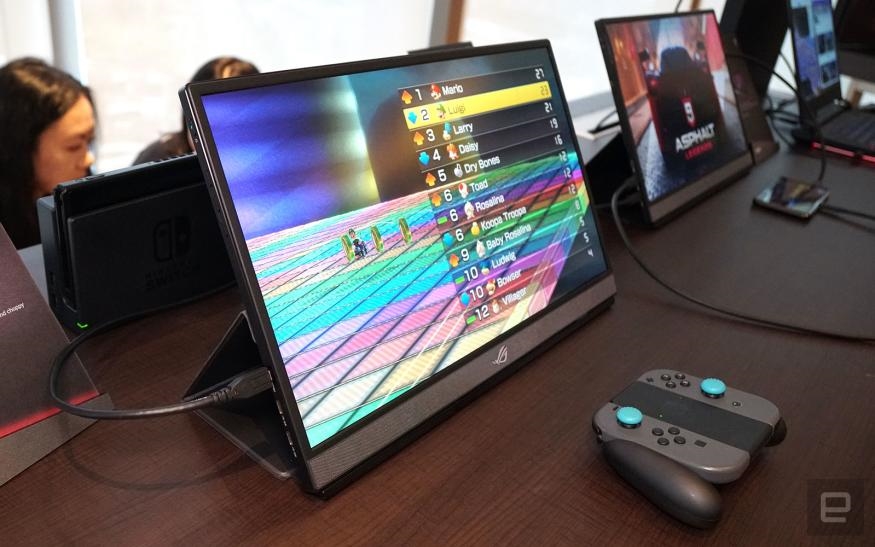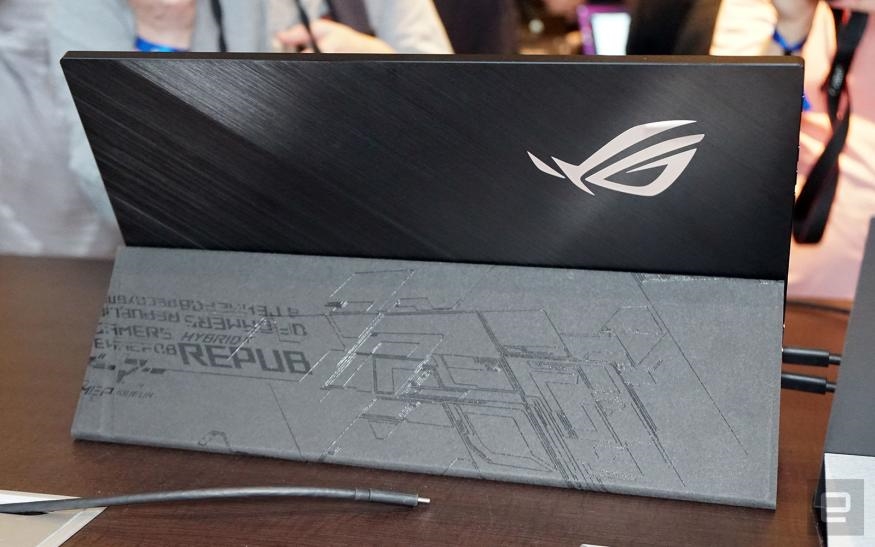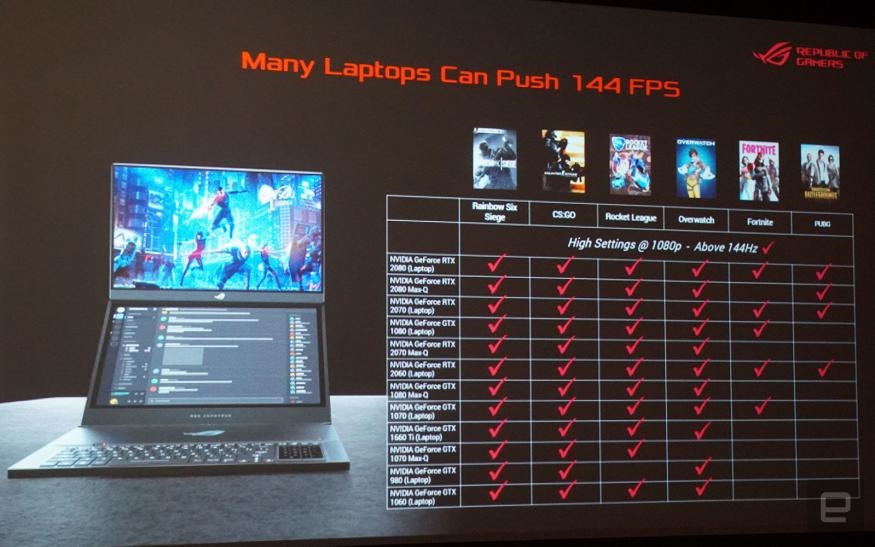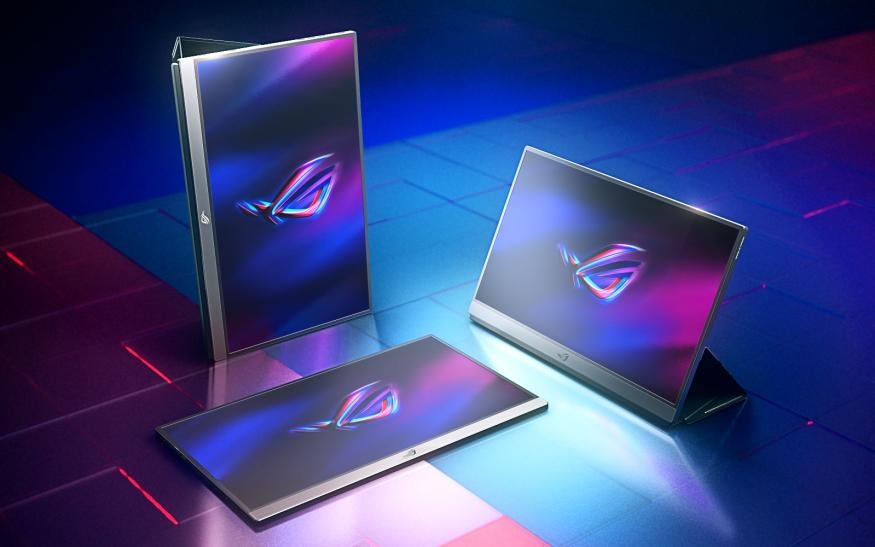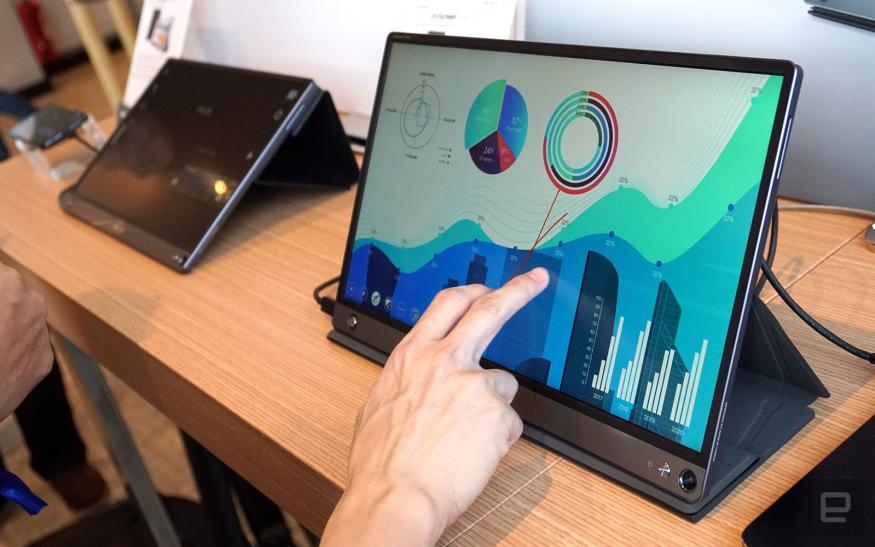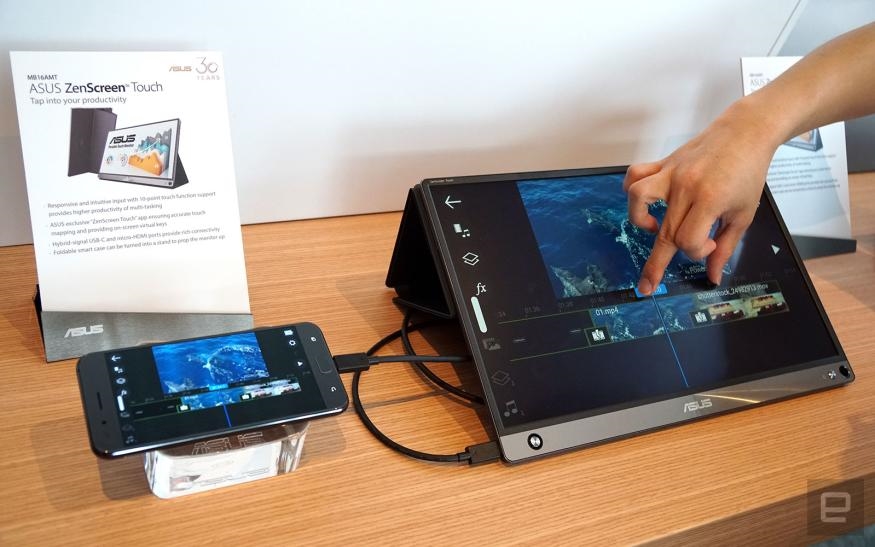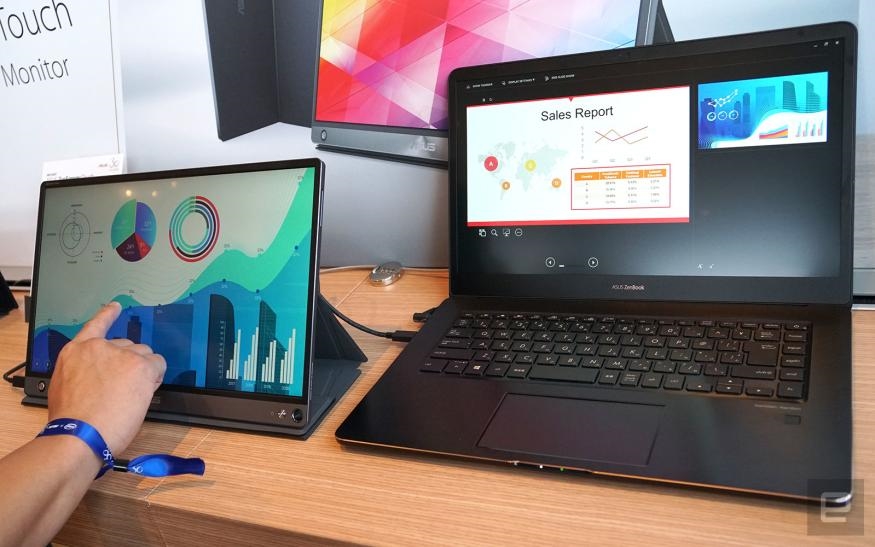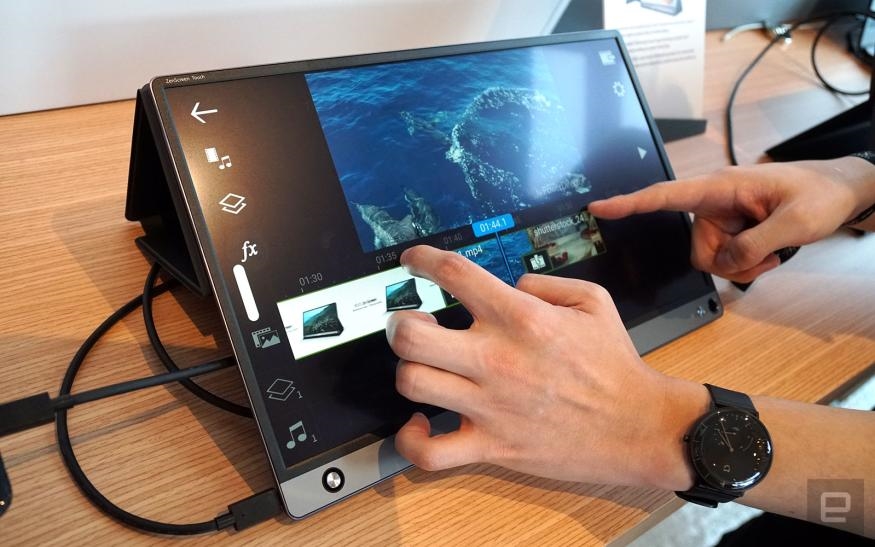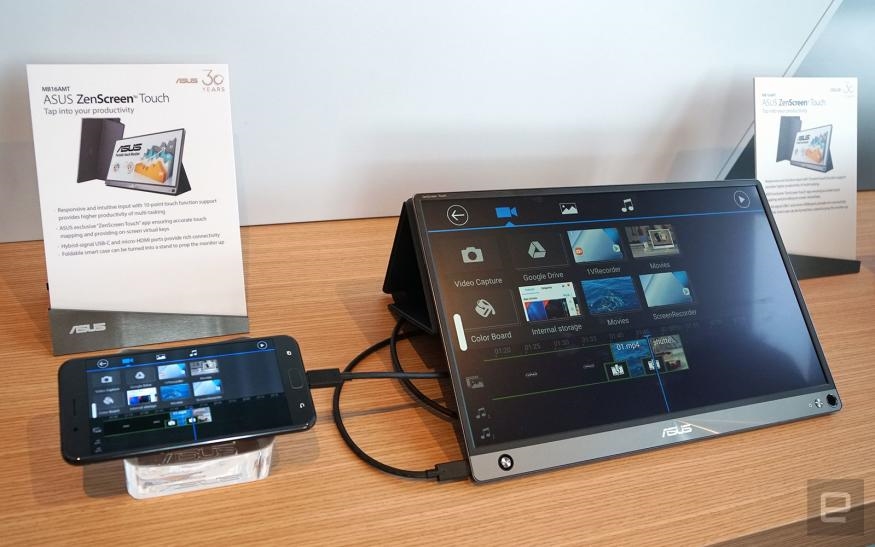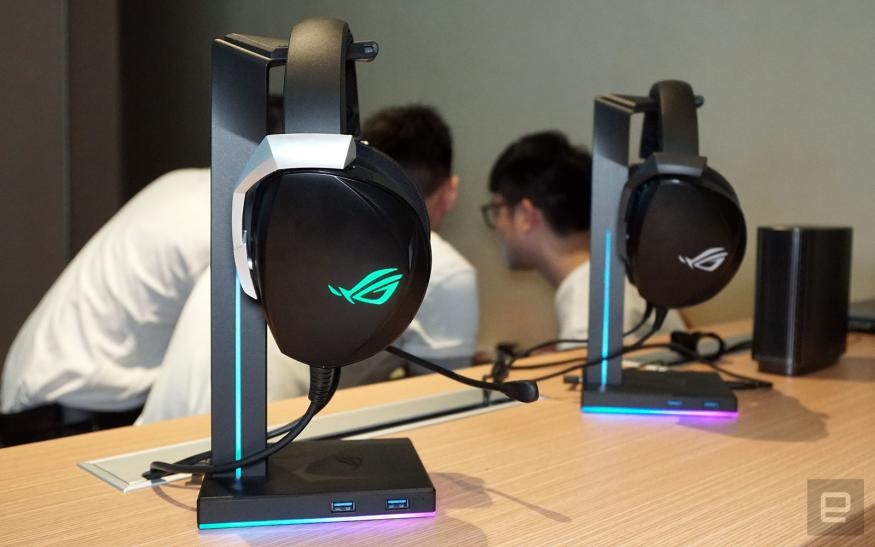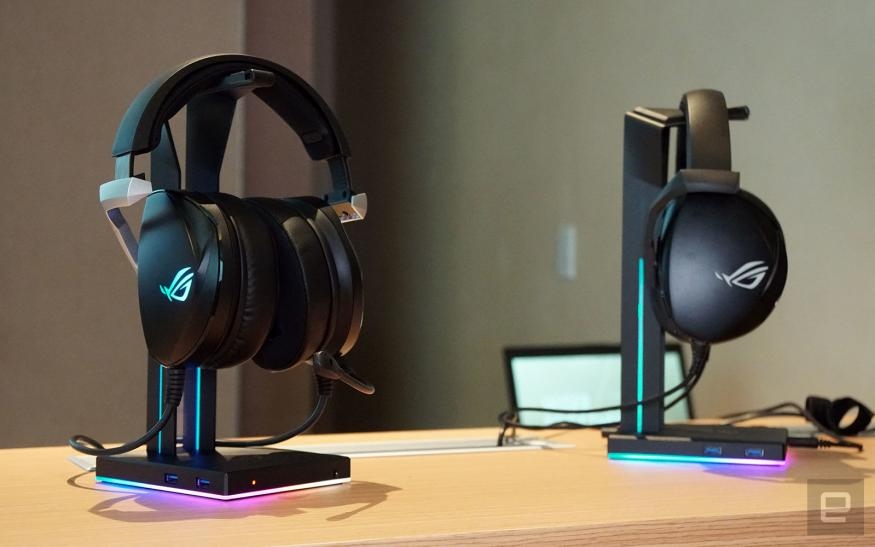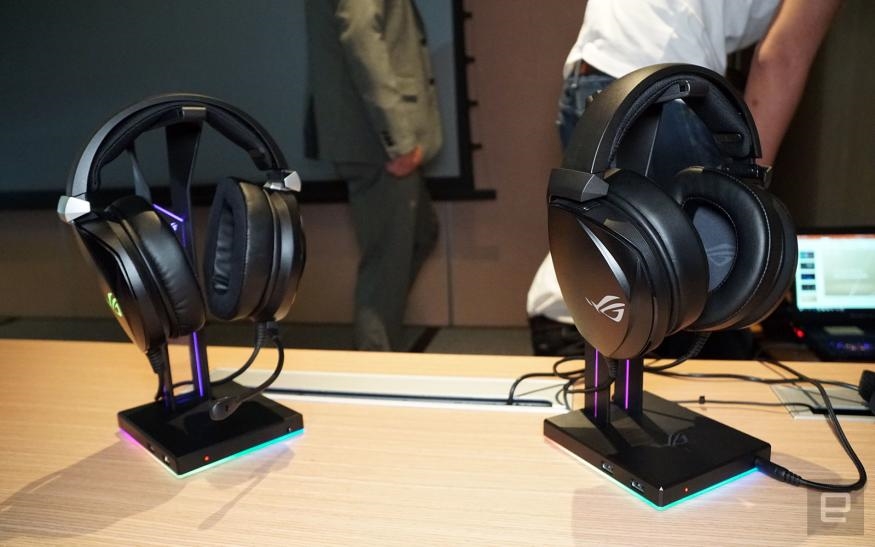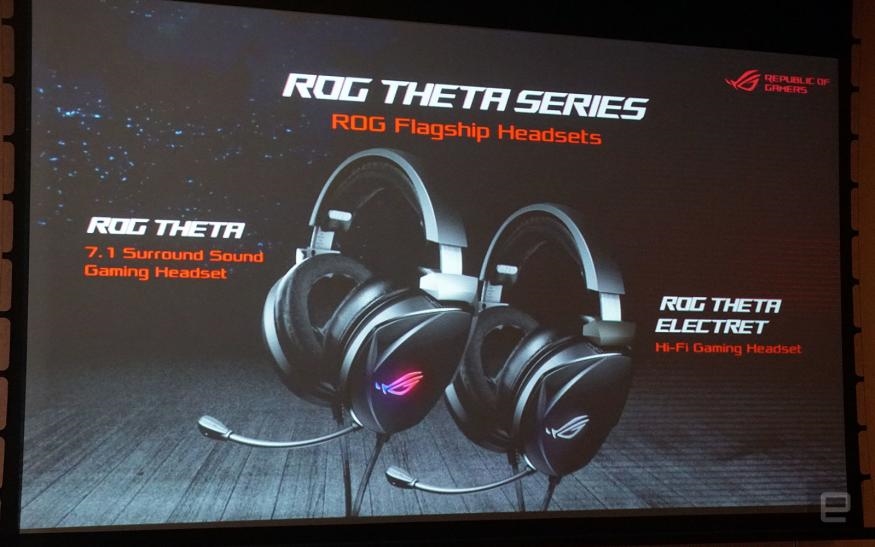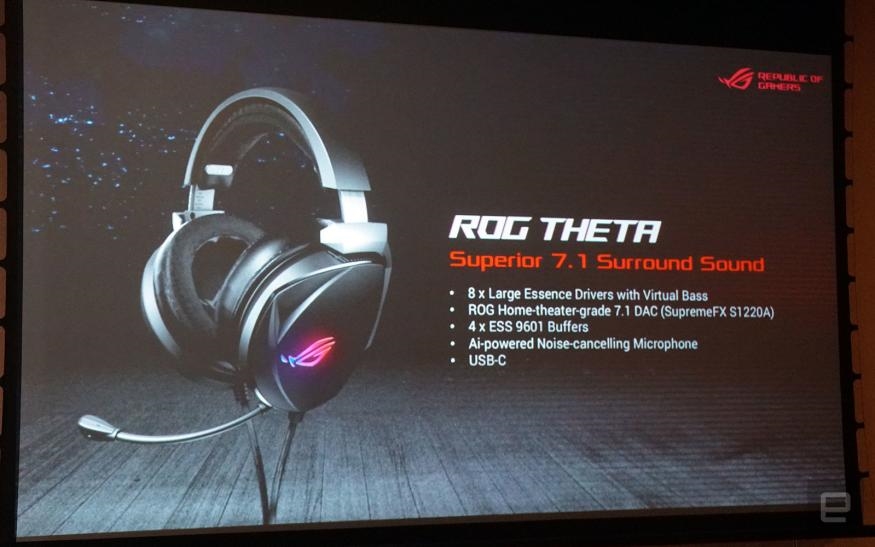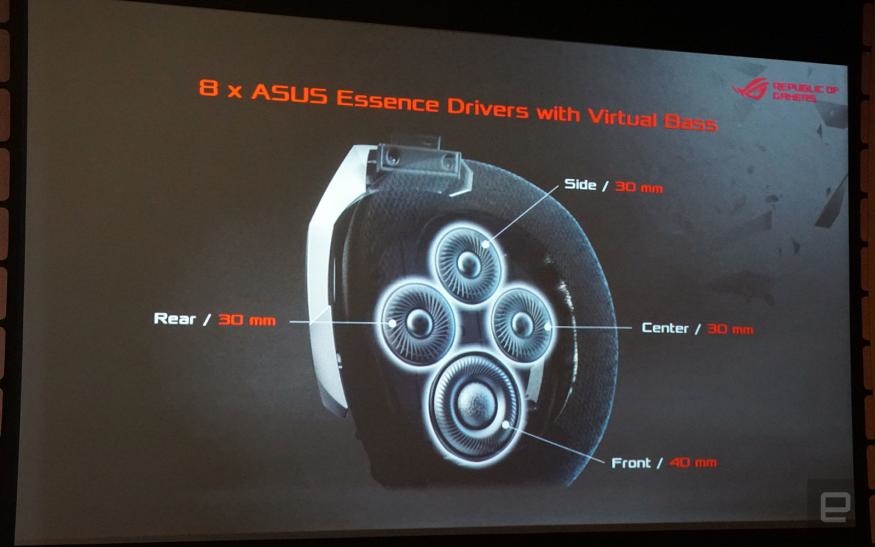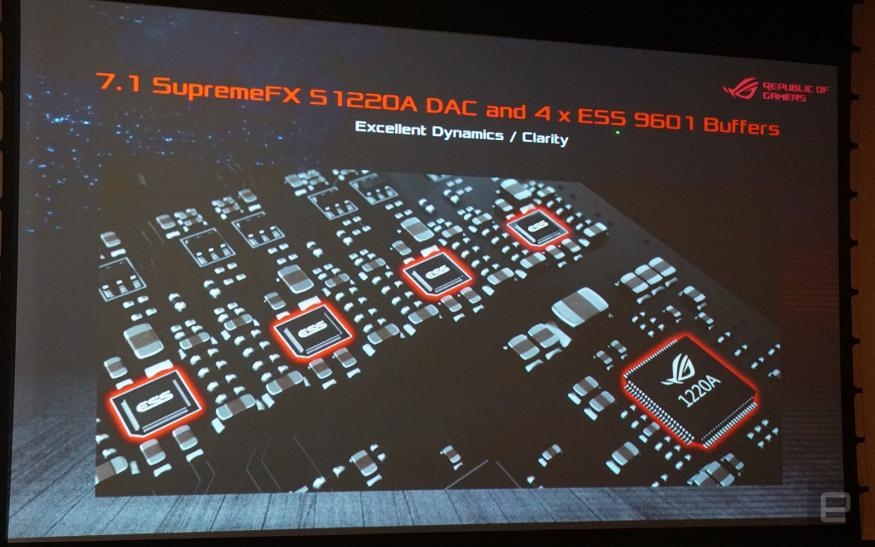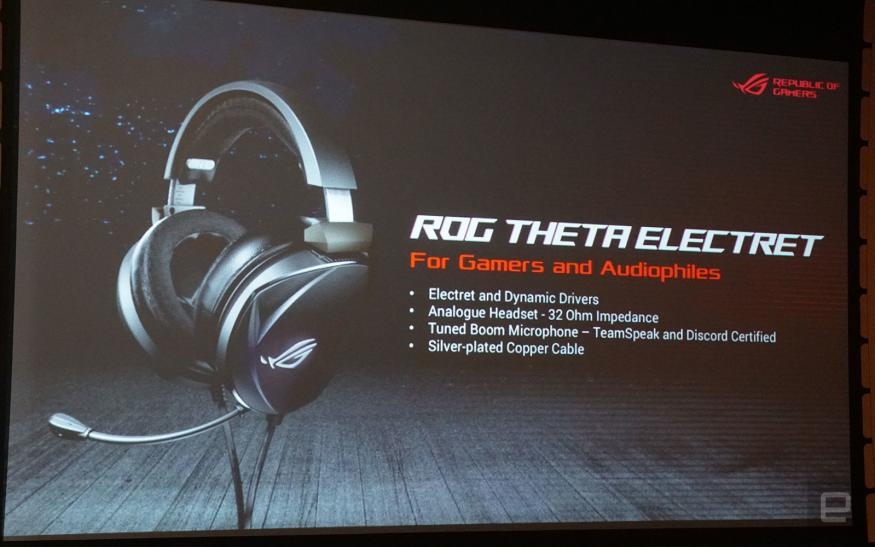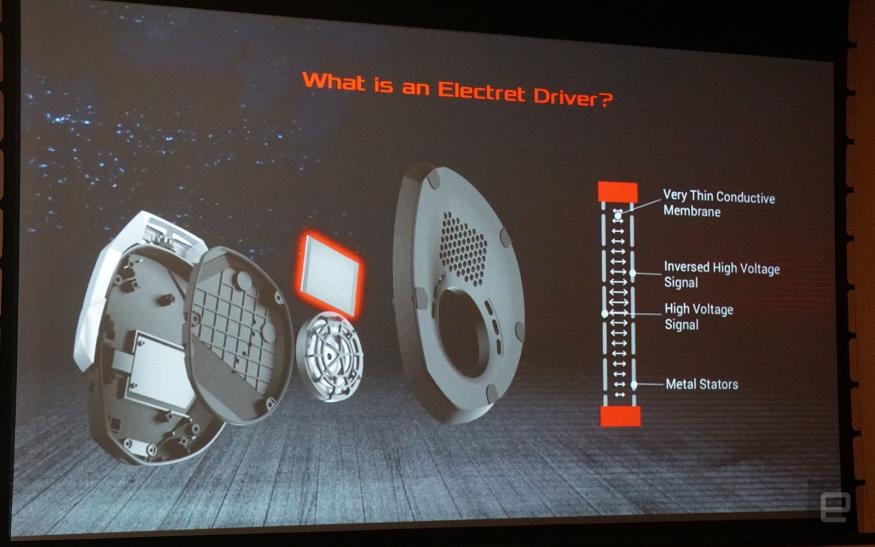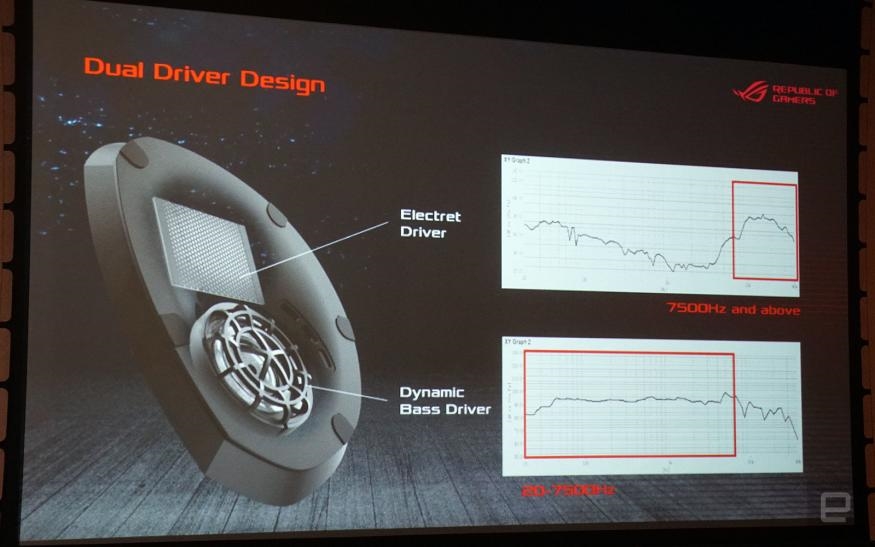The best monitors for 2023
ASUS made the world’s first 240Hz portable monitor for gamers
Portable USB monitors are no stranger to Computex, but this year, ASUS brought us something a little more ambitious: the world’s first 240Hz portable gaming monitor. The ROG Strix XG17 features a 17.3-inch 1,920 x 1,080 IPS LCD, and it’s a high-end affair that offers an adaptive refresh rate of up to 240Hz, along with a 3ms response time. In fact, this is apparently the same speedy matte panel made available on ASUS’ Strix Scar III and Hero III laptops. The monitor also comes with built-in stereo speakers, a magnetic kickstand flip cover plus an internal battery. The latter is good for three hours when maxed out at 240Hz, and it supports Quick Charge 3.0 plus USB Power Delivery.
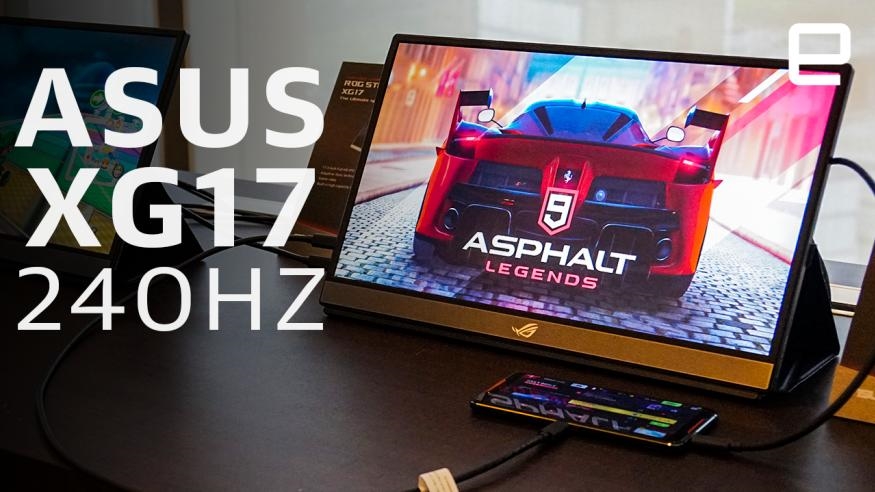
Gallery: ASUS ROG Strix XG17 portable gaming monitor
So what can you play on it? The XG17 offers both micro HDMI and USB-C (DisplayPort) for video input, so all you need to do is plug in a PC, a Nintendo Switch or even a smartphone — like an ROG Phone, as we saw in the demo area. But of course, you’ll want to pair this monitor with a relatively powerful gaming PC to get the most out of its silky smooth 240Hz refresh rate. According to ASUS, any laptop starting with an NVIDIA RTX 2060 or GTX 1070 should be able to run most first-person shooters at both 1080p and above 144Hz.
Gallery: ASUS ZenScreen Touch
Of course, you don’t need a portable gaming monitor, but if you want a portable multi-touch screen then ASUS has you covered as well. The ZenScreen Touch is essentially a smaller 15.6-inch cousin of the XG17, and while it lacks a second USB-C port, it still packs stereo speakers plus the same 7,800mAh battery — one that lasts for four hours on maximum brightness, so you can expect better stamina on normal usage. The touchscreen should work with any PC, but your mileage may vary with phones. One of the working demos featured a ZenFone 4 (running CyberLink’s PowerDirector video editing app), but when I swapped it with my OnePlus 7 Pro, it couldn’t trigger touch input on the monitor.
Gallery: ASUS ROG Theta and Theta Electret gaming headphones
ASUS has also announced a couple of new gaming headphones to complete the experience. The ROG Theta are 7.1 surround sound USB-C cans featuring four drivers on each side. These are powered by ASUS’ very own SupremeFX S1220A DAC plus four ESS 9601 buffers. The cans use a microphone combined with AI to deliver the appropriate noise-cancelling performance as well.
Then we have the ROG Theta Electret, which are 32-Ohm analog headphones geared towards gamers who also happen to be audiophiles. So no USB-C here, but you do get a silver-plated copper cable. These look identical to the Theta, except they lack RGB lighting on the logo, and the four drivers are replaced by one electret driver (7.5kHz and above) plus one conventional driver (20Hz to 7.5kHz) — a combination that apparently provides greater treble clarity without missing out on bass. There’s no AI enhancement on the microphone here, but it is TeamSpeak- and Discord-certified, so your teammates should hear you loud and clear.
The ROG Theta series headphones will start from $299 and will show up in various regions from July onward. As for the monitors, there’s no word on the XG17’s pricing yet as it won’t be released until Q4 this year, but we do know that the ZenScreen Touch will be available in July for under $400. Hopefully the XG17 won’t be too far off from that price point.

(20)

